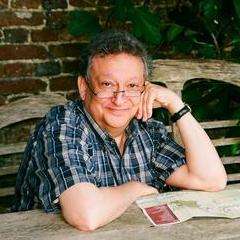Luisa Miller is the 15th of Verdi’s operas. If one wanted a sort of blanket description, one might say that the first act looks back to the bel cantists and even Verdi’s own “years in the galley”, with its bouncy tunes, pinpoint coloratura for soprano and a tenor-soprano duet which would not sound out of place in Donizetti’s Linda di Chamounix. The second act darkens, with a duet for two basses which, while not riveting, offers exchanges that drive the plot and are dramatically placed against the light sounds of Luisa’s innocence, with her great outburst, “Tu puniscimi, O Signore”, a plea worthy of Desdemona, if she had the nerve. And, of course, the big tenor aria that ends the act is a full-blown emotional outburst in a perfectly apt situation. And the final act, with its ravishing father-daughter duet, is pure, refined psychological drama; they are alone and have nothing but one another. Tragedy ensues and, hokey though the plot’s workings may be, the care with which Verdi has crafted the final duets – for father/daughter and the two lovers – never fail to touch the heart.
Sung well by true Verdians and with belief in the opera and its situations, it dazzles. Old recordings invite you right in, as does a live show from here on film. The Met’s latest revival, its first in many years, is a stunning achievement. The role of Luisa, some of the daintier coloratura aside, fits Sonya Yoncheva like a glove. Innocent and almost Amina-like (La sonnambula) at the start, the real, cruel world soon enters, and with it, she rails against it. The sadness comes when, in the third act, she accepts the malice and misery of her situation. There were many moments of utterly radiant singing and she looked and acted the role to a tee.
Tenor Piotr Beczała's bright instrument has always been somewhat difficult to characterize, but he rarely disappoints, and he certainly did not here. I recall hearing Pavarotti, Domingo and Neil Shicoff in the role of Rodolfo and noting how strenuous it becomes by the second act, culminating in the lovely “Quando le sere al placido” and its fierce cabaletta. I feared Mr Beczala’s tenor would be stressed, but it was not – it may not have the morbidezza of Bergonzi or the brilliance of Pavarotti, but his was a very successful undertaking of the part. A classy performance of a new role for this tenor.
The role of Miller, Luisa’s father, was taken by Plácido Domingo, in his 51st role at the Met and, by his own count, his 149th role. I’ve found Mr Domingo’s dips into the baritone repertoire unsuccessful by and far, save for Simon Boccanegra, but to that can now be added Miller. The voice is essentially wrong – he is not a baritone. Just when the voice should take on a mahogany finish it turns opaque, and low notes are more suggested than sung (conductor Bertrand de Billy kept the orchestra at a whisper during those moments). But Mr Domingo’s sense of line, the simplicity and sincerity of his delivery, his musicianship are all to be admired, and the intimate sadness of the final act’s duet could move a rock to tears.
Alexander Vinogradov, making his debut in the role of Count Walter, Rodolfo’s father and usurper to the position of Count through murder, was properly nasty and bullying, though he occasionally pushed a forte top note to the point of shattering. And as his henchman, the amazingly named Wurm, Dmitry Belosselskiy was even more dastardly; it is actually he who puts the tragedy in motion by forcing Luisa to appear to forsake Rodolfo. His big, round tone was just right for the part, and his duet with Mr Vinogradov impressed. In the small and thankless role of Countess Federica, supposedly Rodolfo’s betrothed, Olesya Petrova made one wish to hear her dark, well-integrated tone in more crucial roles.
Santo Loquasto’s sets, mostly dark wood that managed to be both oppressive and bland, were easy to navigate and Elijah Moshinsky’s production was, if I remember correctly, just as let-them-do-what-they-want as it was when it was new in 2002. Bertrand de Billy led the decidedly non-Italian cast (Mr Domingo was the only non-Eastern Bloc soloist on stage) in a fiery reading, from the stunning overture onwards, with quick tempi and delicious attention to Verdi’s wind writing. It was a hot-blooded performance. There are five more through April 21st.




